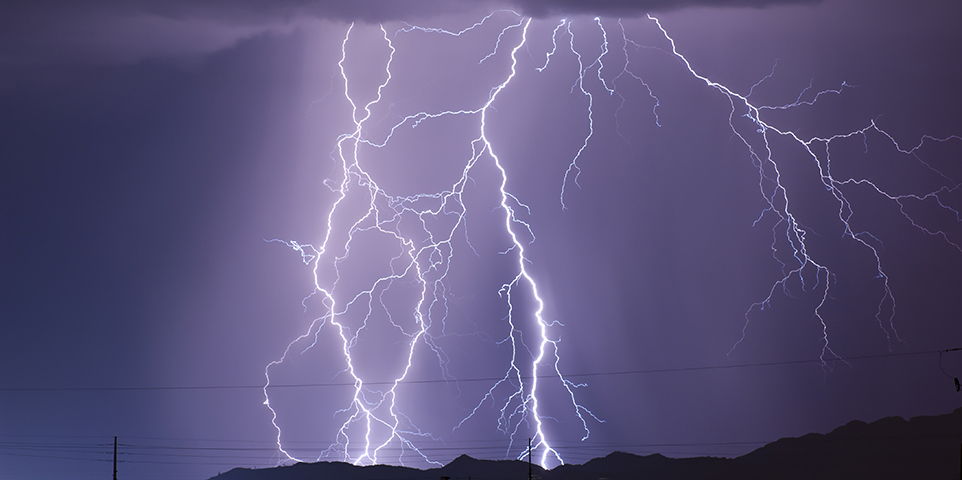MEMBERSHIP
AMPLIFY
EN ESPAÑOL
Connect With Us
- Popular search terms
- Automobile
- Home + Renters
- Claims
- Fraud
- Hurricane
- Popular Topics
- Automobile
- Home + Renters
- The Basics
- Disaster + Preparation
- Life Insurance

Lightning can cause damage to your home and belongings—and can cause bodily harm. It's prudent to take steps to prevent the dangerous effects of lightning and to keep yourself and your family safe. Here are some things you can do.
Your standard homeowners and business insurance policies, and the comprehensive portion of an auto insurance policy cover damages—such as a fire—that results from a lightning strike. Some policies also provide coverage for the damage caused by power surges.
That said, it's far better to prevent lightning damage than to have to deal with the consequences.
A lightning protection system (LPS) provides a specified path on which lightning can travel. The Lightning Protection Institute (LPI) explains how LPSs work in this infographic. A rooftop network of lightning rods or air terminals is connected to a series of down conductors, which carry the current down to a grounding network. In that way, the system safely directs the destructive power of the lightning strike into the ground, which leaves the structure of your home or business and its contents undamaged.
Lightning protection is not a “do-it-yourself” project—contract a UL-listed lightning protection specialist to install the system in accordance with national safety standards.
Electrical surges from lightning can enter a structure via power transmission lines and cause electrical fires as well as damage to your building's electrical system, your appliances and your home electronics.
Regular power strips offer little surge protection. To assure the best safeguards, UL-listed surge protection devices (SPDs) should be installed to filter and dissipate damaging electrical discharges. Most electric utilities will rent or sell a surge device for the electric meter to “clamp down” on incoming surges; licensed electricians can install similar protection.
To protect valuable electronics like computers, home entertainment centers, gaming systems and smart home technology, install UL-listed transient voltage surge suppressors–and consider unplugging expensive electronics when you know a storm is approaching.
Next steps: For more home protection tips, read how to guard against burglary.